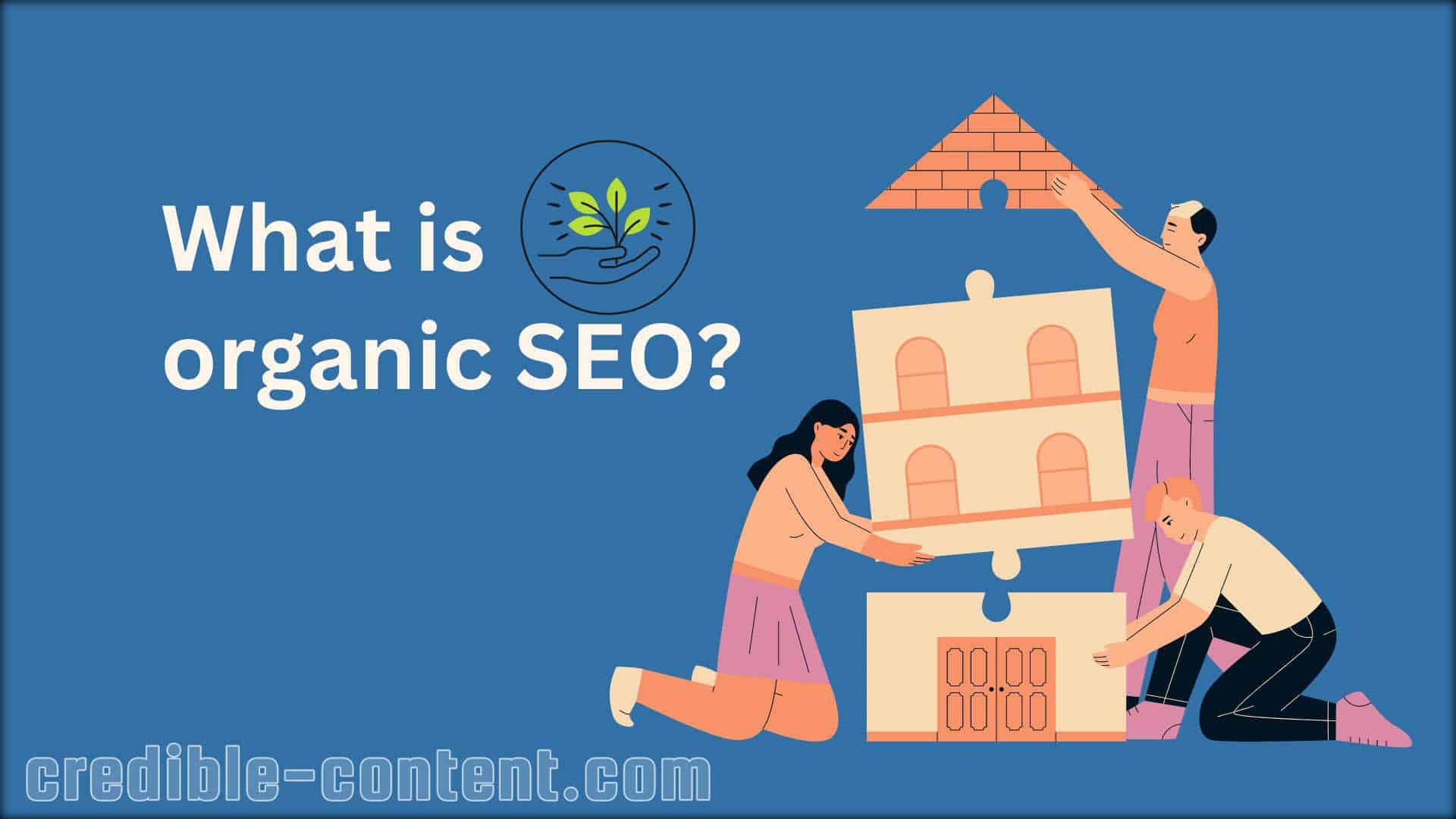What is organic SEO?
What is the meaning of organic SEO?
What is the importance of organic SEO?
You will find all these answers here.
And also, how does content writing help you in this regard?
In case you are in a big hurry and don’t want to read the entire post, here is a video that explains what is organic SEO.
Meaning of organic SEO
You can improve your search engine visibility two ways: through search engine advertising and through organic search engine optimization.
In search engine advertising, through PPC campaigns (for example AdWords), you pay for every click that you get from Google or Bing.
For brevity’s sake, whenever I talk about search engines, I will be using Google because it is the most widely used search engine.
So, when you get search engine visibility through a PPC campaign, you pay for individual keywords.
For example, if I want search engine traffic for the query “organic SEO content writing services” I will need to bid on this keyword in my AdWords account and my ad will be shown according to how much, per click, I’m paying.
This can be quite expensive. More expensive if the competition for the keyword is high.
For example, if I pay $1.75 per click for the query “organic SEO content writing services”, for 100 clicks, I will be paying Google $175.
The best solution for me would be improving my search engine rankings for the above-mentioned query organically.
If you want to know what is organic SEO, it is improving your search engine rankings through the strength of your content.
Herein also lies the importance of organic SEO: the only money that you spend is on writing and publishing content.
This is done through organic SEO copywriting.
Read: SEO copywriting – what it really means.
What is organic SEO in terms of copywriting?
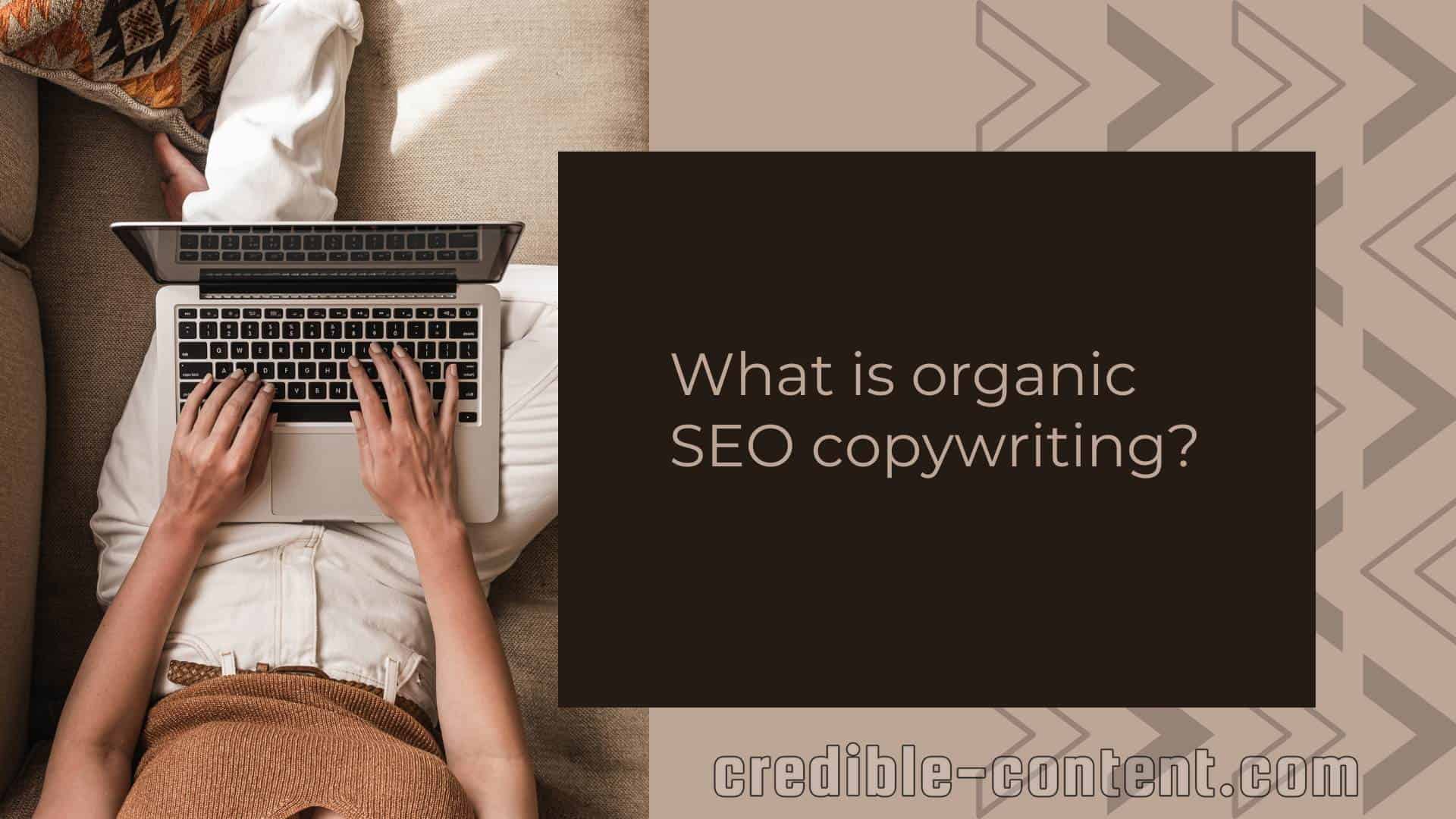
Once you have improved your search engine rankings through your content, you don’t need to pay per click.
Through organic SEO, once you get visibility, whether you get 100 clicks from Google, 1000 clicks, for 1 million clicks, you don’t pay anything to Google.
This is precisely the reason why most of the businesses go for organic SEO instead of PPC campaigns.
PPC campaigns definitely have their advantage.
When you attempt to improve your search engine rankings organically, it takes time.
It can take six months. It can even take a year. This involves regular organic SEO copywriting. Sometimes, every day.
Through AdWords, on the other hand, you start getting highly qualified search engine traffic within minutes of publishing your website.
Running PPC campaigns cannot be a part of your long-term strategy because it can prove to be very expensive.
You need to recognize the importance of organic SEO in the beginning itself, and start working towards improving your search engine rankings through the strength of your content.
How does organic SEO copywriting help?
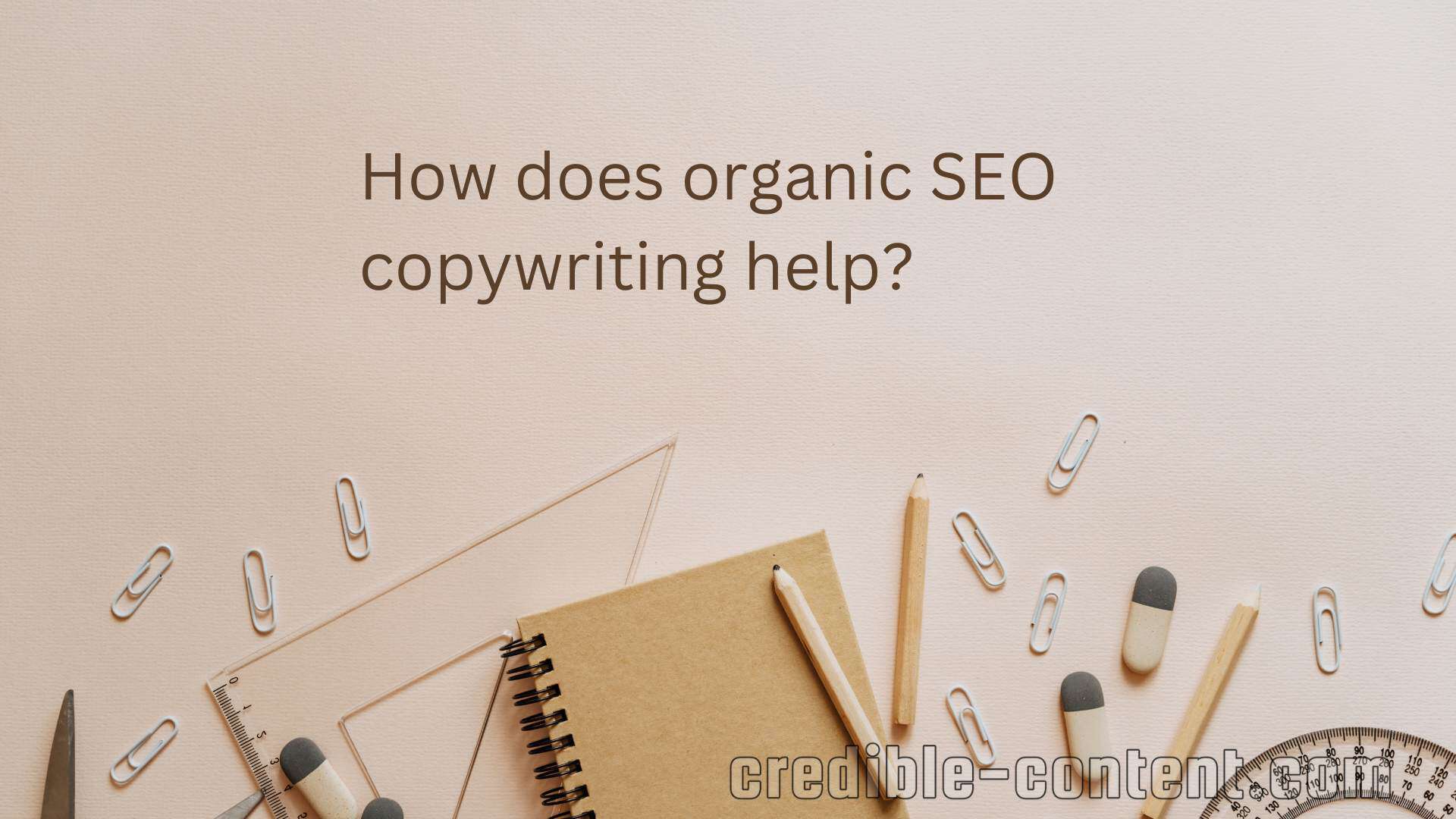
Frankly, there is nothing special about web content writing and organic SEO copywriting.
Whenever you’re writing for the web, you are supposed to write in such a manner that you get well-deserved search engine visibility and once people come to your website, they convert.
Therefore, “organic SEO copywriting” is just another town for writing for the web.
I’m focusing on this keyword because many people search for it.
Multiple times I have written about the features of SEO copywriting, but here I am sending them again so that you don’t have to jump to another link.
Main features of organic SEO copywriting that help you define “what is organic SEO”:
- Relevant keywords incorporated naturally into the content.
- Clear and concise headings and subheadings.
- Engaging and compelling headlines.
- Well-structured paragraphs with logical flow.
- Use of bullet points and numbered lists for easier readability.
- Proper use of meta tags, including meta titles and meta descriptions.
- Consistent use of relevant and descriptive alt tags for images.
- Internal and external linking to relevant sources.
- Accurate and informative anchor text for hyperlinks.
- Proper formatting for better readability, such as bold and italics.
- Correct grammar and spelling throughout the content.
- Concise and informative meta descriptions that encourage click-throughs.
- Utilization of long-tail keywords to capture specific search queries.
- Optimized URL structure that includes relevant keywords.
- Relevant and informative content that addresses the user’s search intent.
- Consistent creation of high-quality and original content.
- Incorporation of social sharing buttons for easy content sharing.
- Optimization for mobile devices and responsive design.
- Utilization of user-friendly and intuitive navigation.
- Regular updates and fresh content to keep the website relevant.
- Implementation of schema markup to provide more information to search engines.
- Inclusion of authoritative outbound links to reputable sources.
- Optimization of page loading speed for better user experience.
- Clear and concise meta titles that accurately represent the content.
- Creation of compelling and shareable meta images or thumbnails.
- Integration of social media sharing buttons to encourage social signals.
- Proper use of header tags (H1, H2, etc.) for better content structure.
- Inclusion of relevant and descriptive file names for media files.
- Implementation of breadcrumb navigation for easy website navigation.
- Regular monitoring and analysis of website traffic and search engine rankings.
- Implementation of proper redirects for broken or outdated links.
The above bullet points also pretty much explain what is organic SEO. They also explain the meaning of organic SEO.
But what is the importance of organic SEO?
- Increases website visibility and brings more traffic.
- Improves search engine rankings, leading to higher click-through rates.
- Helps build credibility and trust with users.
- Enhances user experience by providing relevant and valuable content.
- Increases the chances of attracting targeted and qualified leads.
- Organic SEO is cost-effective compared to paid advertising methods.
- Helps build a long-term and sustainable online presence.
- Improves the overall usability and navigation of a website.
- Helps businesses stay competitive in the online market.
- Allows businesses to target specific geographic locations effectively.
- Provides valuable insights into user behavior and preferences.
- Helps in brand recognition and awareness.
- Improves the chances of getting featured in Google’s rich snippets.
- Enhances the chances of earning quality backlinks from reputable websites.
- Improves website loading speed, leading to better user experience.
- Helps businesses connect with their target audience on a deeper level.
- Supports the growth of other marketing channels, such as social media.
- Improves the chances of getting positive reviews and testimonials from customers.
- Establishes businesses as thought leaders and industry experts.
- Allows businesses to adapt to changes in search engine algorithms and trends.
What is organic SEO further explained
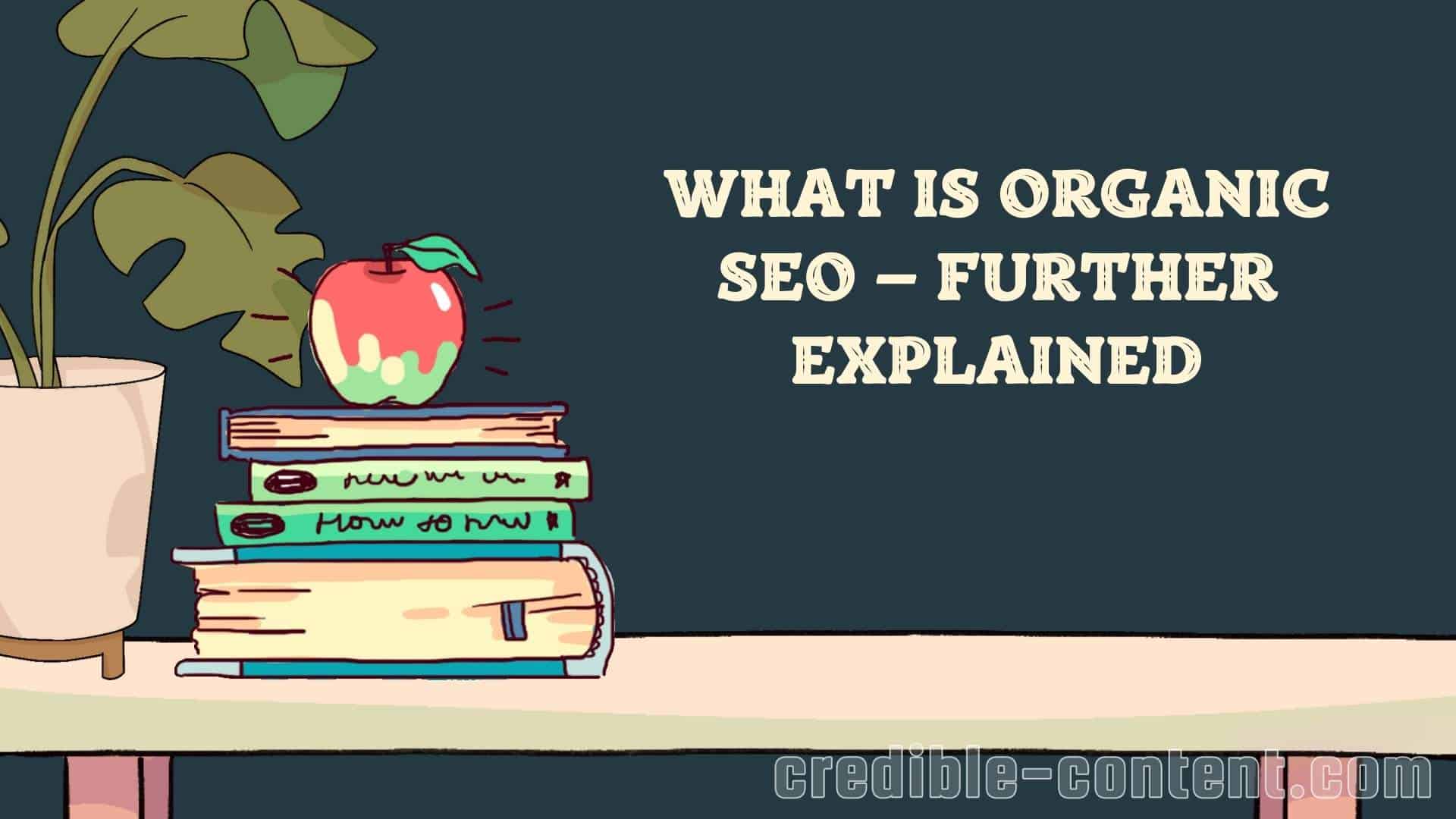
This meaning of organic SEO I wrote a few years ago on this very same page.
It also explains the importance of organic SEO and how organic SEO copywriting plays an important part.
In very simple terms, organic SEO means naturally improving your search engine rankings without having to resort to advertising.
Your links appear in the search engine results for their inherent strength and value and not because you are paying for the placements.
Quality content writing improves your organic SEO.
The benefits of organic SEO are that once you have improved your rankings naturally, all the traffic that you get from search engines like Google is free.
When your content ranks on the strength of its quality, it remains in its top positions for a long time.
How does content improve your organic search engine rankings?
- High-quality and relevant content engages and attracts users, leading to increased website traffic and lower bounce rates.
- Well-optimized content with relevant keywords helps search engines understand the relevance of a webpage to specific search queries.
- Regularly updated and fresh content signals to search engines that the website is active and provides value to users.
- Valuable and informative content encourages backlinks from other websites, which is a key factor in search engine ranking algorithms.
- Content that is properly structured with headings, subheadings, and bullet points improves readability and user experience, which indirectly contributes to higher search engine rankings.
[Quick note: Originally, this web page was written many years ago and I am updating it just now. The format of showing organic search results and promoted search results has been changed now.]
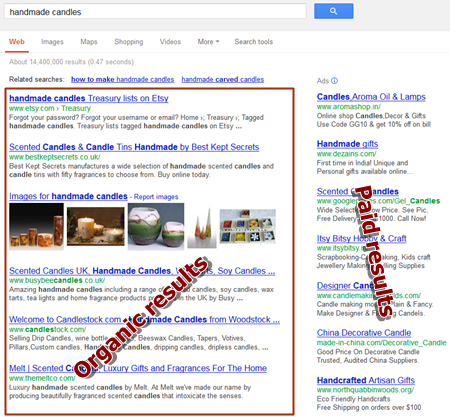
In the image above, you see ads on the right-hand side but I think these days (I am updating this again in July 2023) Google no longer publishes ads on the sides.
Organic results are all those links and their descriptions Google ranks and lists according to its algorithm.
This is where every business wants to appear.
So if somebody asks you, what is organic SEO, it is your attempt to appear within these results, and preferably, on the first page.
How does content writing help you in organic SEO?
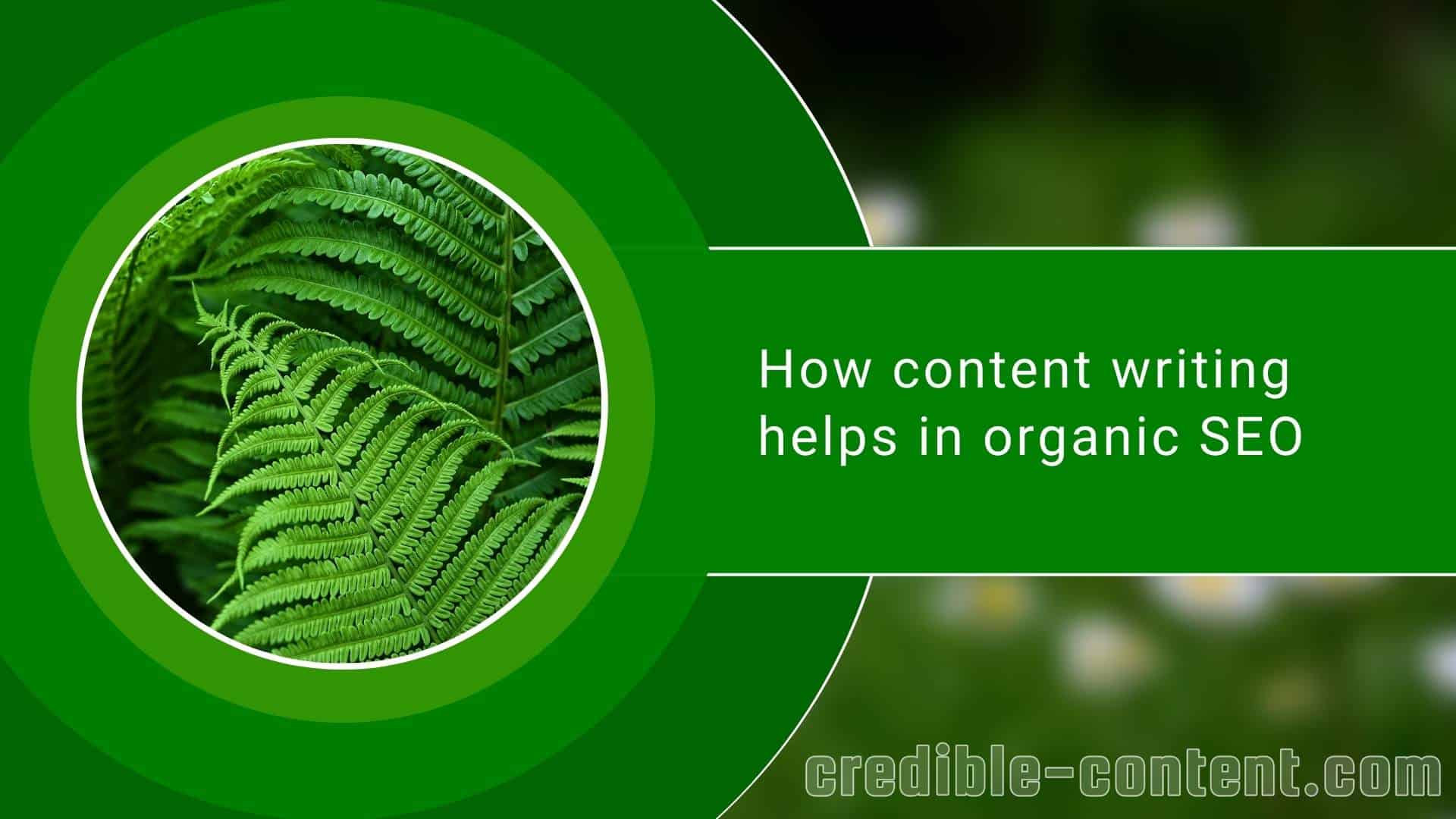
Naturally improving your search engine rankings is all about publishing highly valuable and relevant content, on regular basis.
Two things matter a lot for your higher search engine rankings:
- Valuable content that your visitors find relevant and useful.
- Regularity.
I will first explain why regularity is important.
Google is constantly looking for fresh content.
When it comes to choosing between old content and new content, if there is a small difference in quality, Google goes for new content.
Regularly publishing content also makes Google crawl your website and blog with greater frequency.
When you don’t publish content regularly, it may take weeks, even months for Google to take note of what you are publishing on your website or blog.
For example, if you publish 1-2 blog posts or web pages every month, this is the frequency with which Google or any other search engine will crawl and index your content.
Consequently, it may take a month, or even more, for your latest link, to appear in the search results.
On the other hand, if you are publishing every day, or every second day, this is the frequency with which Google visits your website and fetches new information.
The meaning of organic SEO also means that you need to update your website regularly.
Whenever you update your website or blog, the changes are quickly reflected in the search results.
You don’t have to wait for a month or two.
Now, we come to the engagement and interaction part.
This is where quality and relevance of your content writing matter.
Google’s algorithm takes into account the interaction that people have with your content (the content they find in search results) when ranking your content.
If people don’t find your content useful and relevant, they don’t spend much time exploring your website or blog.
Within a few seconds they come back to Google and carry on the same query.
This tells Google that your website holds inferior quality content and this begins to have an adverse effect on your organic search engine rankings.
Therefore, if you want to increase your organic search engine rankings, it is imperative that you regularly publish high-quality content.
What are the benefits of organic SEO
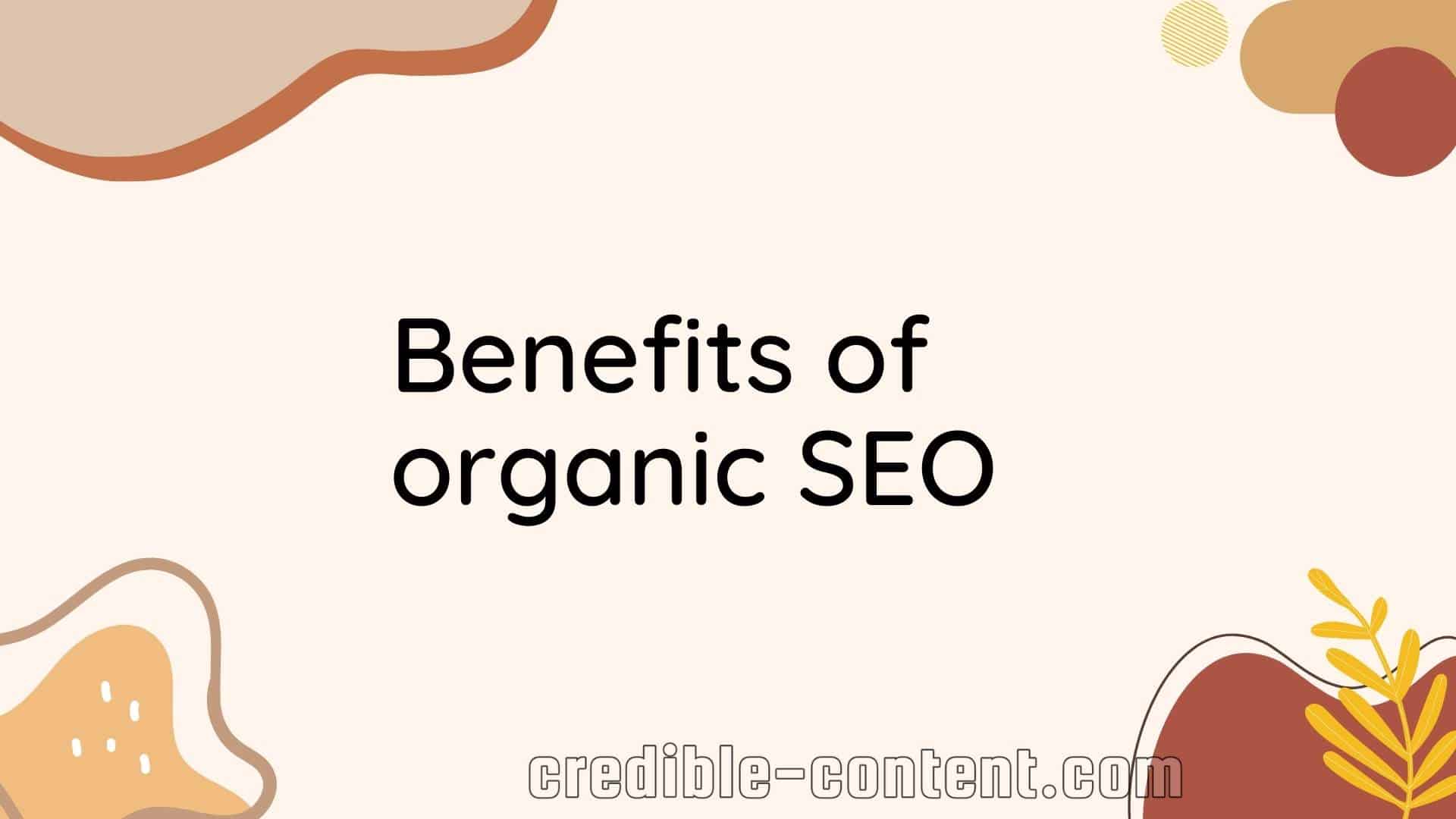
Now that you know what is organic SEO, naturally you would like to know what are the benefits of improving the SEO of your website organically rather than going for paid listings that can be extremely fast and efficient, despite the cost.
I am not against paid listings and these days even I am using them for certain keywords.
But they are never a long-term solution.
Suppose I’m not able to rank well for “content writing services” (I am not able to, actually), instead of waiting for my organic SEO to take shape for this particular search term, I would rather pay for the placement so that by the time my organic search engine rankings improve for this, I don’t lose the business that I might have gotten with better visibility for this phrase.
This is why every search engine marketing effort involves both organic SEO as well as paid SEO.
Listed below are a few benefits of organic SEO.
- Increased visibility in search engine results attracts more organic traffic to your website.
- Higher search engine rankings build credibility and trust with users.
- Improved search engine rankings lead to higher click-through rates.
- More organic traffic means a greater chance of converting leads into customers.
- Is cost-effective compared to paid advertising methods.
- Higher search engine rankings provide a competitive edge in the online market.
- Improved search engine rankings help businesses reach their target audience effectively.
- Enhanced user experience by providing relevant and valuable content.
- Better search engine rankings increase brand recognition and awareness.
- Improved rankings lead to increased brand authority and thought leadership.
- Growth of other marketing channels, such as social media.
- Higher rankings generate more inbound links from reputable websites.
- Improved search engine rankings provide long-term and sustainable online visibility.
- Organic SEO helps businesses adapt to changes in search engine algorithms and trends.
- Better rankings lead to increased opportunities for partnerships and collaborations.
- Organic SEO allows businesses to target specific geographic locations effectively.
- Higher search engine rankings improve the chances of positive customer reviews and testimonials.
- Improved rankings lead to better website traffic segmentation and targeting.
- Organic SEO provides valuable insights into user behavior and preferences.
- Better search engine rankings improve the chances of getting featured in Google’s rich snippets.
What organic SEO copywriting practices can adversely affect your search engine rankings?
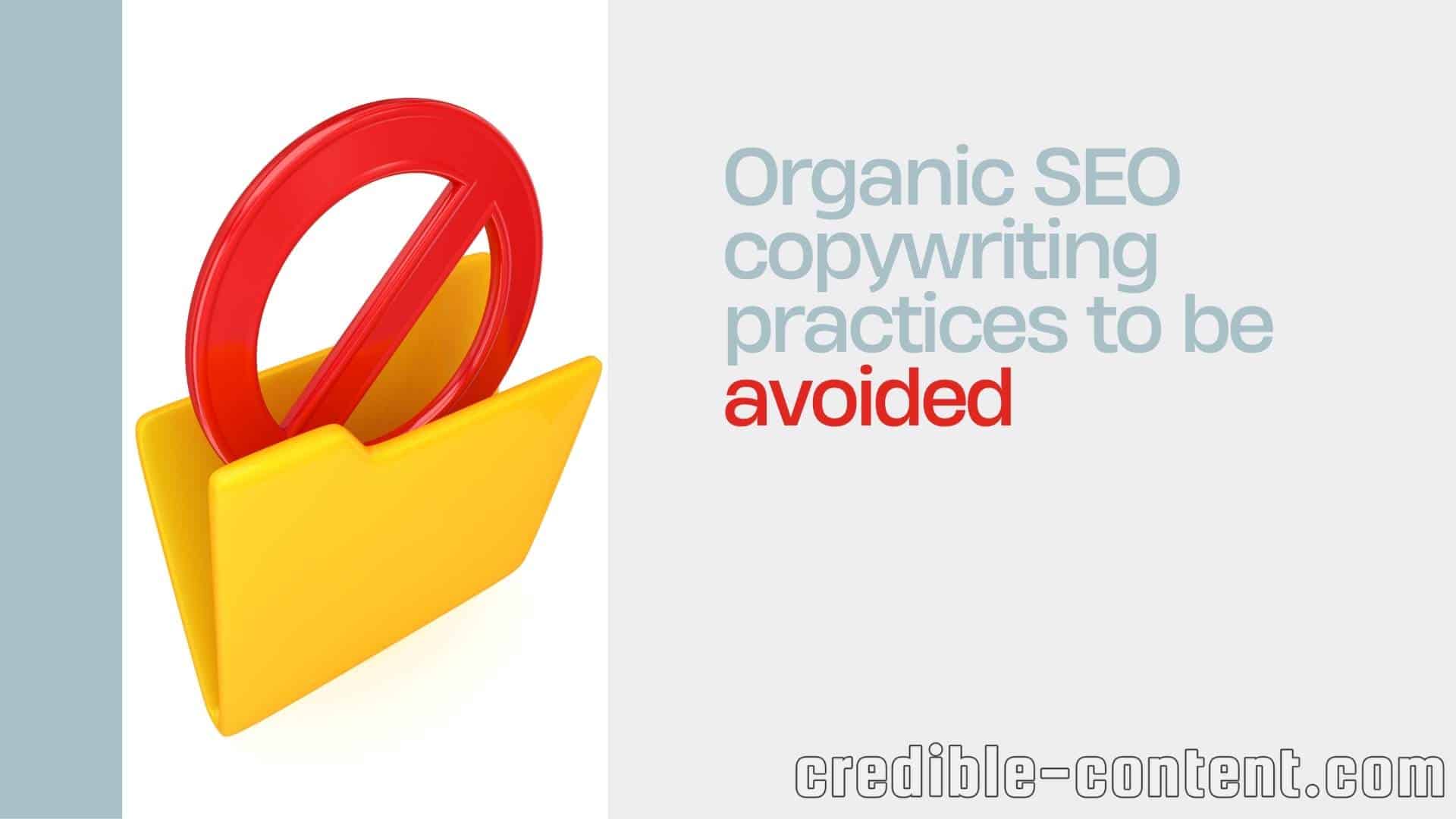
- Stuffing keywords unnaturally into the content, which can negatively impact readability and user experience.
- Neglecting to conduct proper keyword research and failing to incorporate relevant keywords into the content.
- Writing thin or shallow content that lacks depth and fails to provide valuable information to users.
- Ignoring proper meta tags, such as meta titles and meta descriptions, which affect how your content appears in search engine results.
- Using duplicate content across multiple pages or websites, leading to potential penalties from search engines.
- Neglecting to optimize images with descriptive alt tags, which can cause missed opportunities for image search rankings.
- Failing to include internal and external links to relevant and authoritative sources, hindering the credibility of your content.
- Overlooking the importance of well-structured headings and subheadings that improve content organization and user experience.
- Neglecting to format the content for readability, such as using proper paragraphs, bullet points, and bold or italicized text.
- Not optimizing URLs with relevant keywords, making it harder for search engines and users to understand the page’s content.
- Neglecting to update and refresh content regularly, leading to outdated information and decreased relevance.
- Ignoring the importance of mobile optimization, causing a poor user experience for mobile users and potentially lower rankings.
- Failing to optimize website loading speed, which can lead to higher bounce rates and lower search engine rankings.
- Using poor grammar and spelling, which affects the credibility and professionalism of your content.
- Neglecting to include social sharing buttons, limiting the potential for content to be shared and distributed.
- Ignoring user experience factors such as navigation, readability, and clear calls to action, leading to decreased engagement and rankings.
- Failing to implement proper redirects for broken or outdated links, resulting in a poor user experience and potential loss of rankings.
- Ignoring the importance of optimizing meta titles and descriptions for each page, which can impact click-through rates.
- Relying solely on SEO tactics and neglecting to write for the audience, resulting in poor-quality content that fails to resonate with users.
- Using misleading or clickbait headlines and descriptions, which can harm user trust and lead to high bounce rates.
Now that you know what is organic SEO and why content writing is important to improve your organic search engine rankings, do you want to know how my content writing services can improve your organic SEO?
Do contact me and I will provide you more information.
You have also learned the meaning of organic SEO, the importance of organic SEO and what wonders organic SEO copywriting can do to your search engine rankings.

